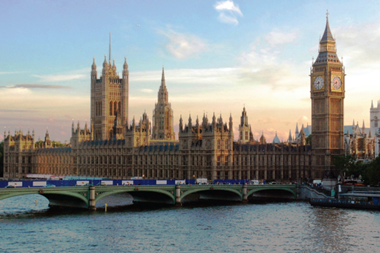The UK government has launched a consultation on proposals to allow trustees of automatic enrolment defined contribution (DC) schemes to exclude performance-based fees from the regulatory charge cap in a bid to facilitate more investment in illiquid asset classes.
The consultation builds on previous consultations on improving member outcomes and addressing barriers to long-term illiquid investment, and on recommendations of the Productive Finance Working Group (PFWG).
The proposal is for trustees to be allowed to exclude “well-designed” performance fees from the 0.75% charge cap.
“The Government has listened to the recommendations of the PFWG and responses to previous consultations and is now taking action by consulting on possible further reforms,” it said in the consultation document.
“Our intention is to create a regulatory environment that allows pension scheme trustees to invest where they think they can achieve better value for members and which encourages genuine innovation and competition on fees, including on the part of investment managers.”
In a press release, pensions minister Guy Opperman also said that lifting barriers could also “help contribute to the key role finance has in tackling climate change, by mobilising private finance towards clean and resilient growth and addressing market barriers to longer-term investing in green projects”.
Included in the consultation document is mention of a proposal to retract permission for the calculation of performance fees for the charge cap to be “smoothed” over a multi-year period.
Regulations allowing such a smoothing mechanism came into force in October, but today the government said it was proposing to remove the mechanism from regulations if it followed through on its proposal for a performance fee charge cap exemption.
Some illiquid assets can be accessed without paying performance fees, such as some infrastructure and private credit, but venture capital and other forms of private equity typically attract a performance fee.
Scepticism in some corners …
At the Pensions & Lifetime Savings Association (PLSA), deputy director of policy Joe Dabrowski said the pension fund body welcomed the intent to make it easier for DC schemes to invest in a wider range of assets and illiquid investments but had not seen any compelling evidence to suggest that raising the current DC default charge cap of 0.75% would result in any material change in the volume of investment in illiquids.
He added: “Overcoming behavioural barriers will require regulatory consistency, and whilst finding the right solution is sensible, it is surprising to see that recent proposals to allow for a smoothing of costs over a five year period may be abandoned, before they have had time to take effect.”
The PLSA previously said performance fee smoothing would ease DC illiquid investment “a little,” but pointed to there being bigger barriers, as Dabrowski did again today in response to the government’s new consultation.
Dabrowski also said pension schemes would always be interested in investing in assets with a strong likelihood of delivering higher returns over the long term, “but these opportunities must be cost transparent, suitable for their members and provide value for money”.
“For the growth in investment in productive finance it is important that new and innovative products, such as the Long-Term Asset Fund (LTAF), come to the market and meet pensions schemes’ needs, rather than simply a reliance on traditional investment vehicles’ fee models,” he added.
At consultancy Hymans Robertson, Brenda Kite, DC provider and platform solutions lead, said the firm did not believe that allowing performance-related fees for illiquid assets within the charge cap would be a game-changer.
“Performance related fees are difficult to administer in DC schemes as well as raising questions of fairness from one member to the next,” she continued.
She said innovative approaches to including illiquid assets within the present charge cap were emerging, with competition between fund managers growing and amendments to the present regulation, like the LTAF. She said this was ensuring a level playing field and should drive more cost-effective solutions for members.
She continued: “It also has to be remembered that the UK will have to compete on its merits with the rest of the world for a share of UK pension funds’ investments in illiquid assets. We feel that the government needs to look at other ways of incentivising investment in this area of the UK economy.”
… thumbs up in others
Others reacted positively to the government’s consultation today. Chris Hulatt, co-founder of energy and financial services group Octopus, believes the government has “rightly identified a key barrier for pensions schemes investing in opportunities to back high growth small British businesses” and that by removing this obstacle, “millions of savers in DC pension schemes could have access to the opportunity for some of their money to be channelled into venture capital”.
Meanwhile John Forbes, former head of real estate at PwC and now an independent consultant on structuring real estate funds, said the government’s proposal was to be “hugely welcomed”.
“I believe that carried interest and similarly structured performance fees should be regarded as a profit share rather than a fee,” he said, adding that he would be requesting that it be made clear that this was equally applicable to real estate and infrastructure funds.
Helen Morrissey, senior pensions and retirement analyst at Hargreaves Lansdown, said anything that gave schemes flexibility should be welcomed and there was real potential for much-needed innovation.
“However, there are important caveats,” she added.
“Performance fees can be complicated, and care must be taken that schemes really understand the cost of what they are investing in if members are to be protected. Otherwise, we risk scheme members paying over the odds for something that does not give them long-term value for money and undermining confidence in pensions – transparency will be key.”
The consultation closes on 18 January 2022.
Downing Street hosts
The government’s latest consultation comes on the heels of an institutional investor roundtable that the prime minister and Chancellor hosted on Friday at Downing Street, with increasing long-term investment in science and tech firms as the focus. According to the government, the work and pensions secretary gave an update on the work the DWP as taking to support pension investment in science and tech, including consulting on further changes to the auto-enrolment charge cap.
The event was a follow-up to a letter from politicians in August, challenging UK’s institutional investors to invest more domestically to support an “investment big bang”. The letter did not go down too well, with several pension fund industry officials responding by calling on the government to remove barriers to long-term investment, and the CIO of one of the local authority pension pools saying the government needed to consult with domestic pension funds in the same way it was engaging international investors to back British green industry.
IPE understands that Friday’s roundtable was the first of a planned series of such events on different themes. Insurers, asset managers and venture capital investors were present, with mainly defined contribution pension providers, such as Aviva, Phoenix and Smart Pension, present in addition to some large defined benefit pension funds, such as BT Pension Scheme and Universities Superannuation Scheme.
Andrew Evans, group CEO at Smart said the provider was delighted to attend the roundtable.
“Smart is fully supportive of the government’s agenda and that DC pension scheme members should be able to benefit from suitable long-term investments, including illiquid assets,” he said in written comments for IPE. “In early 2021, the Smart Pension Master Trust became an early adopter, leading the market by incorporating private markets illiquids into the default fund through a 10% allocation.”
A spokesperson for USS said the roundtable was a welcome opportunity for it to highlight the level of investment it currently held in the UK, such as offshore wind, fibre broadband provision, and Thames Water.
“We share the government’s view that there is an opportunity to drive growth and prosperity by investing in the UK – under he right conditions – securing the returns that will enable USS to pay the pension promises made to our 476,000 members whilst benefitting the UK’s economy.”
Last year USS moved to allow its DC members access to its private markets investments.










